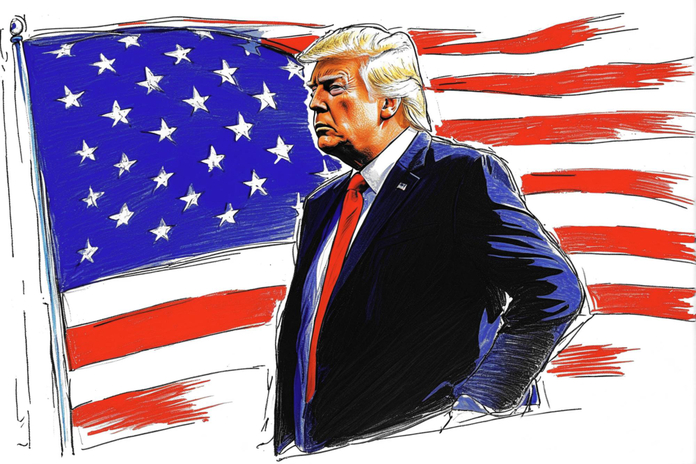U.S. and global stock markets are shrugging off concerns over new import taxes as the Trump tariffs effect takes center stage. Despite escalating trade tensions, Wall Street rallied on Thursday, signaling that investors may be more focused on earnings and interest rates than on protectionist policies.
Wall Street Rises Amid Trump’s Tariff Uncertainty
As President Donald Trump’s new round of tariffs kicked in across dozens of countries, investors seemed relatively unfazed. The S&P 500 gained 0.5%, inching closer to its record high, while the Dow Jones Industrial Average rose by 254 points. The NASDAQ Composite added 0.8%, driven by strong earnings in the tech sector.
Much of the optimism stems from expectations that the Federal Reserve may lower interest rates soon—offering relief for both borrowers and businesses. Despite ongoing concerns that the Trump tariffs effect could lead to inflation and economic slowdown, investors are encouraged by stronger-than-expected corporate earnings and global monetary easing.
Global Central Banks Respond
Across the Atlantic, the Bank of England cut its main interest rate in an effort to stimulate a slowing UK economy. Similarly, other central banks are preparing monetary tools to combat the fallout from the global trade conflict initiated by the U.S.
Although Donald’s Trump’s latest tariffs are lower than previously threatened and were well telegraphed, the uncertainty surrounding future trade moves is still impacting business sentiment. The stock market’s resilience has raised concerns that valuations are becoming too stretched, particularly since rebounding from its April lows.
Mixed Signals from the U.S. Economy
Economic data released Thursday painted a mixed picture. Weekly jobless claims edged higher, but the numbers remained within recent trends, suggesting no major spike in layoffs. Carl Weinberg, chief economist at High Frequency Economics, dismissed concerns of a downturn, saying, “These are not nearly recession readings.”
On a brighter note, U.S. worker productivity improved more than expected last quarter, potentially easing inflation pressures. That could prove important as tariffs drive up import prices, making consumer goods and industrial supplies more expensive.
Corporate Movers and Shakers
Several notable companies drove market gains on Thursday. Apple Inc. (NASDAQ:AAPL) jumped 1.8% following CEO Tim Cook’s meeting with Trump, where he announced a $100 billion increase in U.S. manufacturing investment over the next four years. Apple’s sheer scale continues to provide a buffer against economic volatility.
DoorDash Inc. (NASDAQ:DASH) surged 7.3% after beating profit expectations and reporting a strong uptick in customer orders. Meanwhile, Duolingo Inc. (NASDAQ:DUOL) soared 31.3% on impressive earnings, with subscription revenue up 46% year-over-year.
On the downside, Eli Lilly and Co. (NYSE:LLY) slid 11%, despite beating earnings estimates. Investors were disappointed with early-stage data for orforglipron, its oral weight-loss drug in development. Intel Corp. (NASDAQ:INTC) dipped 1.2% after Trump called for the CEO’s resignation, accusing him of being “highly CONFLICTED” without presenting evidence.
Global Stock Markets Show Resilience
Stock markets across Europe and Asia also responded positively to the day’s developments. The Shanghai Composite rose 0.2%, while Hong Kong’s Hang Seng gained 0.7% as Chinese exports rebounded in July. Businesses raced to ship goods before further tariffs take hold.
In Japan, the Nikkei 225 advanced 0.6%. Toyota Motor Corp. (NYSE:TM) shares declined after it cut its earnings forecast, citing tariff-related costs. In contrast, Sony Group Corp. (NYSE:SONY) rose, signaling it has weathered the tariffs better than expected.
Despite the uncertainties, stock markets have shown resilience in the face of the Trump tariffs effect, focusing instead on monetary policy and strong corporate performance. Whether this optimism lasts will depend on how long the trade war continues and how it truly impacts global economic growth.
Featured Image: Freepik







